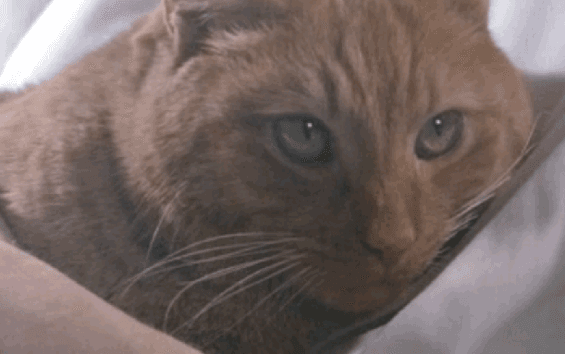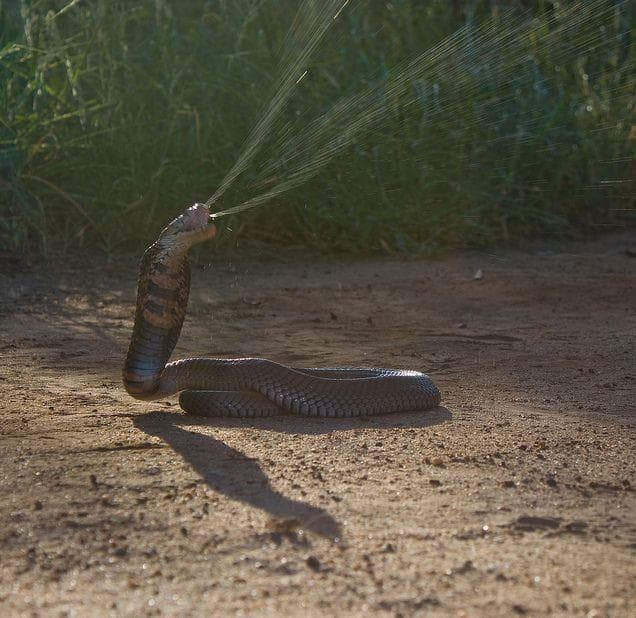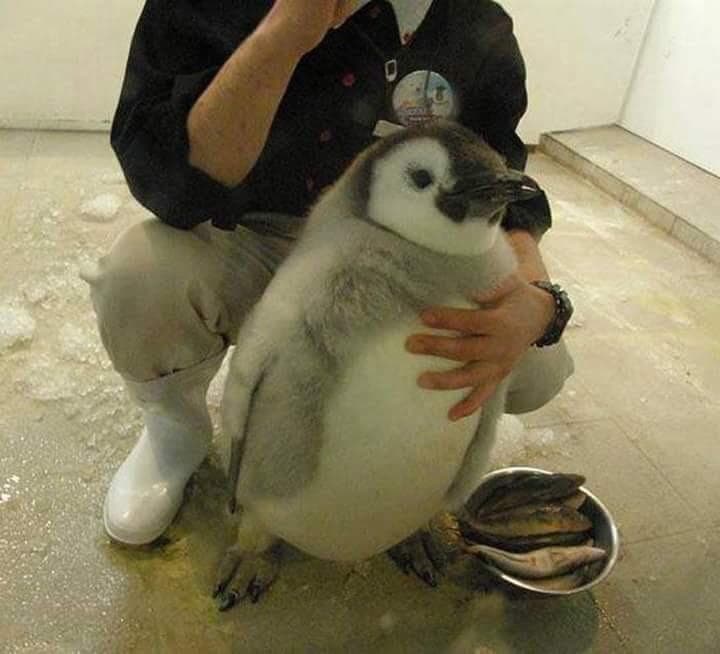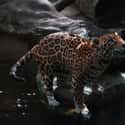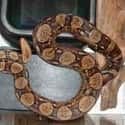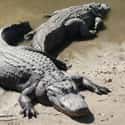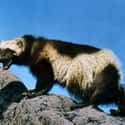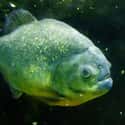-
(#7) Jaguar
- Panthera onca
Jaguars are rather large wild cats that should not be kept as pets. That said, it is legal in some places to keep them as pets, though they require a great deal of care. Jaguars are able to take down adult crocodiles, so they're not to be trifled with.
A jaguar requires a great deal of land to roam, and like tigers and lions, they eat a lot of meat. In the wild, a jaguar will eat as much as 50 lbs. of food when they feed if there isn't a regular supply. In captivity, they eat less, but they can still consume around 30 lbs. of raw meat at every feeding.
That costs a lot of money, and given the space requirements to keep them happy, most people can't keep them properly as pets. Like other big cats, jaguars aren't domesticated, but they can be tamed to a certain point.
They might be fine around their primary caregiver but won't show any love or affection to anyone else. Few places allow people to own jaguars, but they are legal if they are registered in Missouri and Texas.
-
(#6) California grizzly bear
- Ursus arctos californicus
If you're in the market for an animal that can grow to 1,500 lbs, a bear might be the pet for you. There are a lot of different species of bears, and not all of them make for good pets... to be clear, none of them make for good pets, but that hasn't stopped people from trying. Bears can be trained, but they aren't domesticated animals, and an angry one has no problem taking down a full-grown person.
Bears are technically predators, but meat makes up only a small portion of their diets. Depending on the species, they may subsist almost entirely on berries and other vegetation they forage while preparing to hibernate.
Most nations do not allow for the ownership of a bear, but there are some places and several exceptions. To have one in places like Indiana or Alabama, you're going to need a special permit, and they aren't often given to people just looking for a pet. They are most often approved for people who work with bears, which can include animal actor specialists, veterinarians, circus performers, and the like.
-
(#11) Boa
- Boidae
All species of snake are predators, but the one that winds up in most people's homes is the Boa Constrictor. There are several species, and also Pythons that take up a lot of terrariums around the world, but the Boa is the pet of champions. The snakes live long lives, and if they are well-cared for, they make for docile and friendly pets.
Feeding a Boa Constrictor is a bit different for a captive animal than it is for them in the wild. Pet Boas are usually fed pre-killed rats and mice, whereas a wild animal will hunt and kill its own food.
So long as they're well-fed and cared for, they make for amazing pets you can take on the go (in some places). Most states allow for their sale in the pet trade, so they aren't as exotic as they once were.
Caring for a large snake requires a large enough enclosure to keep them comfortable, but depending on the size of the snake, that's not necessarily a large space. You don't want to keep them in glass cages as this makes regulating their heat and humidity a challenge, but other than that, they are surprisingly easy to care for.
-
(#3) Alligator
- Alligator
If the mood strikes you to pick up a large reptile and an iguana isn't going to cut it, it is legal — in some areas — to own an alligator. Crocodiles are also available, but gators are far more common in the west. Keeping an alligator isn't easy, as they require specific living conditions to keep them happy and healthy.
You need to have a large semi-aquatic space where they can fully submerge themselves or lay out in the sun. An average adult alligator grows to around 11 feet long and can weigh in at 1,000 lbs. They are not for the faint of heart. The good news is, your cuddly friend will live for up to 50 years if properly cared for, so they'll be around a lot longer than most pets.
Feeding an alligator isn't exactly easy. You need to give them a lot of raw meat on a semi-weekly basis. The best way to do this is to put a chicken on the end of a long pole and give it to the gator. Gators tend to eat every 5-6 days, and they will need around seven lbs. of meat at each feeding, so they don't require as much food as some of the other predators on this list.
-
(#12) Wolverine
- Gulo gulo
There's a reason Marvel Comics' most aggressive character is named after this small North American critter. Wolverines are vicious, and they have never been domesticated. They are solitary animals that look somewhat like a cross between a small bear and a dog.
Their ferocity makes it possible for them to take down animals larger than themselves, so they are a real "handle with extreme caution" sort of animal. It's atypical, but there are a few places where owning a wolverine as a pet is legal, though it's not advised by anyone who doesn't have a great deal of experience working with them.
Wolverines are omnivorous, so they eat a lot of vegetation, but prefer meat whenever they can find it. In the wild, they eat caribou, moose, and mountain goats, but they are equally satisfied eating squirrels, rodents, and bird eggs. Wolverines tend to wander upwards of 15 miles in a 24-hour period, so they require a lot of land to remain happy.
-
(#9) Piranha
- Piranha
Piranhas are some of the most notorious freshwater fish, so people naturally want to drop them into their aquariums. Their depiction in the movies doesn't really match up to reality, and while they do eat meat voraciously, they are predominantly active at night, and may not be as interesting as you initially thought.
It is legal to own Red-Bellied Piranha in most places, but it is often highly regulated. One of the principal concerns is that people will put them in lakes and rivers, making them a dangerous invasive species. Kept in the home though, and it's a rather interesting fish.
You can't keep these fish with other species of fish unless they are feeders... for obvious reasons. They are predators and will eat anything that swims along. Piranha are omnivorous and do require some of the same foods other fish eat. Worms and raw veggies like potato, zucchini, and spinach are a favored snack. Of course, you can drop in a chunk of raw beef or chicken as a tasty snack. Don't feed them something like goldfish -- if you want to feed your piranha a live fish, make sure it's one that they would normally eat in the wild, or you could cause serious gastrointestinal problems!
One other point of interest: piranhas are expensive. You can expect to pay around $500 for one fish, and seeing as they do best while schooling, getting a good number of them into a tank is going to cost a lot of money.
New Random Displays Display All By Ranking
About This Tool
Predators are not always wild animals. With the rapid development of the domesticated animal industry, people can get more unique pets. Most people have no idea that the most common pets can actually be ferocious predators in wild nature. If you try to raise a predator as a pet, it is actually unfair to this animal and you must learn more about the raising knowledge.
Are you looking for some special pets? This interesting collection could give you inspiration. The random tool lists 15 predators people can own as a pet. However, each country has different laws and regulations on the protection of pets and wild animals, and legal parenting procedures are required.
Our data comes from Ranker, If you want to participate in the ranking of items displayed on this page, please click here.


